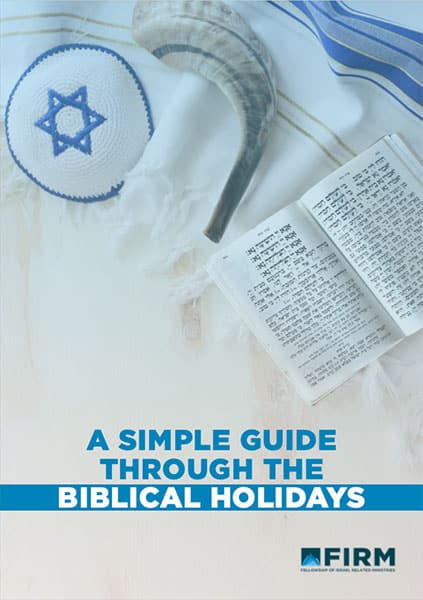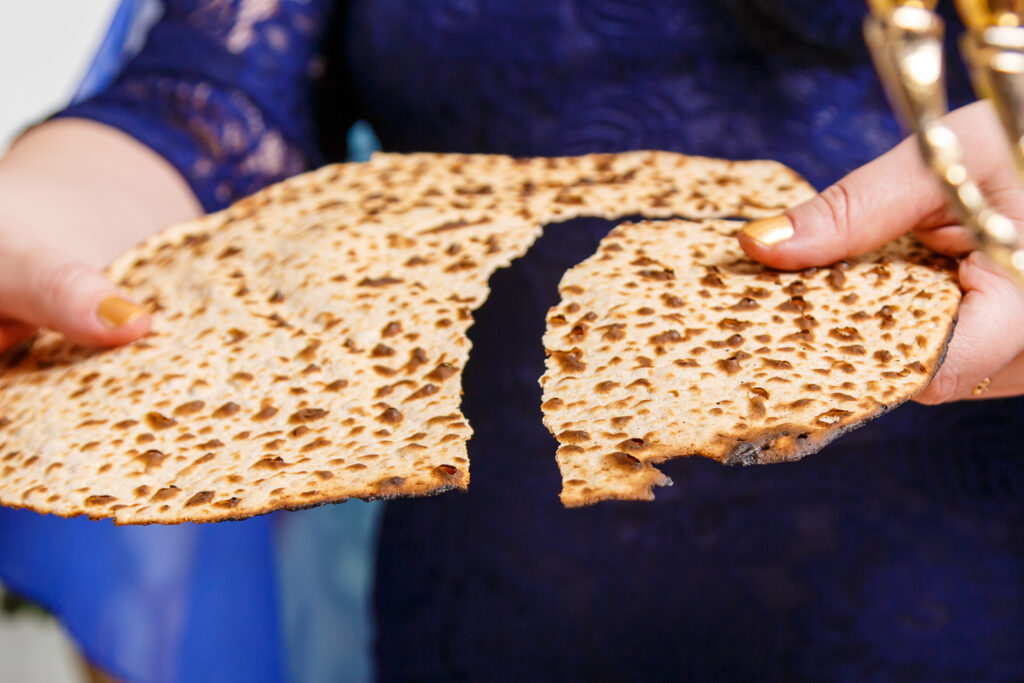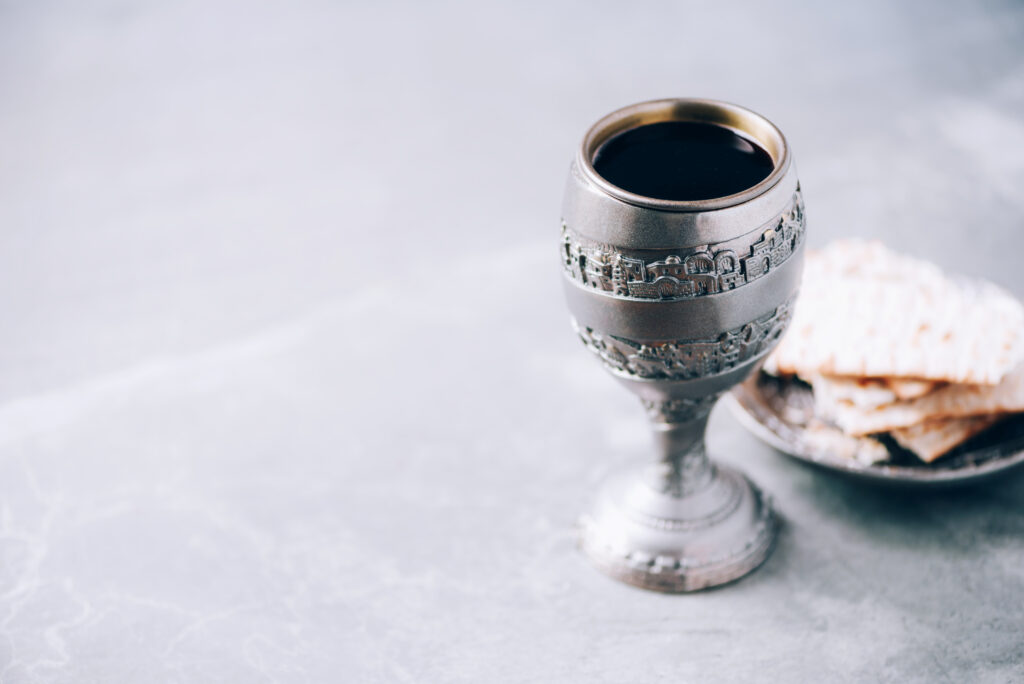The Last Supper and Passover
Jesus shared a Passover meal with his disciples in what Christians call “the last supper”. It was an important holiday on the Jewish calendar, so it was natural for the Messiah and His disciples to observe it. But did you know that this became the basis for the first communion?
And it’s important to note that this was not a “last meal” before an execution. Rather, it was the fulfillment of an ancient prophetic meal. It would prove who Jesus was to the world.
So, what do we know about this unique event?
First of all, everything that was on the table was significant.
For example, as part of the meal, participants eat bitter herbs. This was commanded in Exodus 12 and represents the bitterness of slavery. One often eats it by dipping a piece of unleavened bread in a bowl of ground bitter herbs with oil.
During the meal, Yeshua said, “…the one who dipped his hand with Me into the bowl will betray Me” (Matthew 26:23). With this in mind, it is interesting that it was after Judas ate this morsel that Satan entered him (John 13:27).
Seder – the Order of Passover
The meal at Passover is known for its specific order. That is why in Hebrew this dinner is usually referred to as ‘Seder’ – Hebrew word for order.
The key element of the tradition is simply to follow the story recorded in Exodus. Jewish families around the world recall the slavery in Egypt, plagues and the miracles that followed.
With symbols and songs, the whole story is retold every year. This part of the dinner is called Hagada – Hebrew word for telling.
It is likely that over the years certain elements were added or amended. Some rabbinical traditions also added more texts. But the essence remained the same from biblical times to today: we are remembering God’s redemption.
The First Communion: This is My Body
Jesus later breaks the bread saying, “Take, eat; this is my body” (Matthew 26:26). This was not ordinary bread, but unleavened bread, which we call matza.
This begins the first communion at the last supper.
In His teachings, Yeshua compared leaven to hypocrisy, sin, and wickedness (Matthew 16:6; Luke 12:1). By doing so, He was saying that there was no sin or hypocrisy in Him, and they could partake in His sacrifice.
The First Communion: This is My Blood
Throughout a traditional Seder meal, there are four cups of wine that are consumed. The third cup is recognized and consumed toward the end of the meal and is called “the cup of redemption”. It is to remember their physical redemption from Egypt.
It was most likely this cup that Yeshua raised, saying, “Drink from it all of you; this is My blood of the covenant, which is poured out for many for the forgiveness of sins” (Matt 26:27-28). This would have been the cup of the first communion.
Cups of Deliverance
The four cups of wine parallel four promises. And some specific foods point to distinguishing elements of the story of deliverance. Thus, the Passover meal is an educational opportunity.
Future generations were commanded to observe the Passover, so this feast was intended to remind God’s people of their deliverance. It bridged a connection to their past.
The Scriptures often recount the miracle of the Exodus when God delivered Israel with a strong hand and an outstretched arm.
Psalm 81:10
I am the Lord your God,
who brought you up out of the land of Egypt.
Open your mouth wide, and I will fill it.
Psalm 105:37
Then he brought out Israel with silver and gold,
and there was none among his tribes who stumbled.
Psalm 136:11
and brought Israel out from among them,
for his steadfast love endures forever;
Even Stephen, in Acts 7:36 recounts the story of the Passover. “This man [Moses] led them out, performing wonders and signs in Egypt and at the Red Sea and in the wilderness for forty years.”
“Eat the flesh of the Son of Man and drink His blood”
Surprisingly, this is not the first time that Yeshua spoke of eating His flesh and drinking His blood.
Before the last supper, in John 6, Yeshua made similar comments. Ironically, verse 4 tells us that He said these things also during the time of the Passover.
“Truly, truly, I say to you, unless you eat the flesh of the Son of Man and drink His blood, you have no life in yourselves.” John 6:53
The Last Supper and Communion
This statement caused many people of His day to turn away from the Lord and to no longer follow Him. But for the Lord, to “eat the flesh,” and to “drink His blood” was at the very core of being His disciple.
It still is today, but we have given it a different name—Communion. The real beginning of the Church’s ritual of taking communion did not start at the Last Supper. Through the Passover traditions, it was set over thousands of years before.
Jesus was not starting a new tradition. He was simply revealing God’s true message of the Passover Seder—communing with God. This is why He told His disciples that when you observe this feast and break the unleavened bread, “…do this in remembrance of Me” (Luke 22:19).
While we remember Israel’s deliverance, let’s remember the only One that can truly deliver and spend time communing with Him.

A Simple Guide Through the Biblical Holidays: Free PDF Download
You may know them as the “Jewish holidays,” but did you know the Bible calls them “Feasts of the LORD”?
We’ve put this guide together for you so that you have all you need to know about these holidays that God calls His own.
Estimated reading time: 5 minutes


